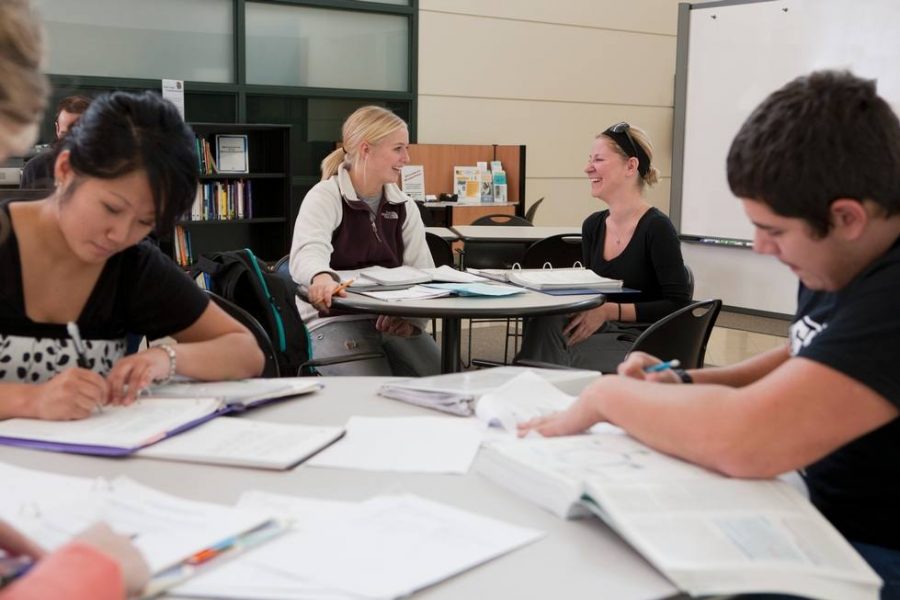Student employees adapt to COVID-19
Mar 23, 2020
With the decision to switch on remote learning for the remainder of the semester, many student employees are in uncharted territory. 3,600 of the students at Grand Valley State University have an on-campus job. While some are are still able to do their work remotely, other student employees are finding themselves out of a job entirely. Many students use their on-campus jobs to pay their rent, buy groceries and pay their tuition and are unsure of how to financially support themselves as their workplaces close. During this time of extreme uncertainty, GVSU is committed to helping their students.
“If any student is facing a hardship — even if they are not a student employee — they are encouraged to reach out to the Office of Financial Aid & Scholarships or Student Employment,” said Michelle Rhodes, the Associate Vice President for Financial Aid. “GVSU has a plan to support all of our students.”
The Office of Financial Aid is working with each individual student employee to meet their needs during this time. Student employees are encouraged to continuously check their email or go to Grand Valley’s COVID-19 FAQ to stay up-to-date. Meanwhile, all students are still able to take advantage of services offered by the Grand Valley staff who are able to work remotely, such as the Counseling, Tutoring and Writing Centers.
“Switching to virtual appointments has been a bit of a learning curve, but we’re using Google Meet to give students audio and visual options,” said Tasman Mattox, a student consultant at the Writing Center. “That way, we can build rapport and work on the paper in a constructive, efficient way, despite the distance.”
In the switch to remote services, the Writing Center has continued their work. In the absence of physical appointments, students can still get feedback on their writing by sharing a Google Doc with [email protected], or by “dropping in” to their virtual Knowledge Market on Google Meet.
“Our consultants, desk workers and administrators are in near-constant virtual communication,” said Writing Center Director Patrick Johnson. “Everyone has been working together to assist students and each other. Given the uncertainty we are all experiencing, I’ve been inspired by the efforts of our writing consultants to share information, provide encouragement and support, and stay in contact with one another.”
Online appointments come with their own challenges, but so far students have still been able to get the academic consultation they need despite the national emergency.
“It’s a transition that takes full cooperation for the students and student employees involved,” said Breann Barge, another student continuing her working as a writing consultant remotely. “But overall, it’s been smooth for those who still want their work looked at.”
While students may not physically be on campus, the university is dedicated to helping them succeed, whether that’s through consultation on writing essays or financial assistance for those who’ve lost a campus job. Student employees should email [email protected] and detail their situation so that the Office of Financial Aid can understand how to support them. They ask that student employees include their G Number in the email and exercise patience as they work through all of the requests they are receiving.


























